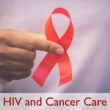Opportunistic Infections HIV/AIDS
Opportunistic Infections: Risks to the HIV/AIDS-Related Weakened Immune System
A compromised immune system leaves HIV-positive individuals more susceptible to illnesses that would normally not be life-threatening to a healthy person. Because these illnesses prey on the weakened immune system, they are known as opportunistic infections (OIs). This blog post examines four prevalent OIs linked to HIV/AIDS: cytomegalovirus (CMV) infection, tuberculosis (TB), candidiasis, and pneumocystis pneumonia (PCP).
Table of Contents

Recognizing HIV/AIDS-Related Immune System Weakness
Opportunistic Infections HIV/AIDS
HIV attacks CD4 cells particularly, which are important immune system components that coordinate immune responses against infections. As HIV infection worsens, the body’s capacity to fight off pathogens—disease-causing organisms—is weakened due to a decrease in CD4 cell count.
Opportunistic Infections: Taking Advantage of the Deficiency
Opportunistic Infections HIV/AIDS
Numerous species, such as bacteria, fungi, viruses, and parasites, can cause OIs. In people with sound immune systems, these organisms usually exist in the environment or within the body without producing illness. Nevertheless, these opportunistic microorganisms can take advantage of the weakness in the immune system caused by HIV and cause illnesses.
Four Often Occurring Opportunistic HIV/AIDS Infections
Opportunistic Infections HIV/AIDS
Let’s examine four commonly occurring OIs in more detail:
- TB: A bacterial infection that mostly affects the lungs, tuberculosis (TB) is a major cause of death for individuals living with HIV. Even in the case of a latent infection, where TB germs are present in the body but do not yet cause symptoms, the chance of acquiring active TB is greatly increased by the presence of HIV.
- Pneumocystis pneumonia (PCP): is a fungal infection that targets the lungs, resulting in fever, coughing, and difficulty breathing. In the early stages of the HIV epidemic, it posed a serious risk to health, but its incidence has dramatically decreased with the use of efficient ART.
- Candidiasis:Candida infections can take many different forms, such as thrush in the mouth, esophageal candidiasis in the esophagus, vagina, or skin folds. Although candidiasis usually poses little threat to life, it can cause discomfort and lower one’s quality of life.
- infection with the cytomegalovirus (CMV): CMV is a common herpesvirus that frequently stays dormant in the body. Nevertheless, CMV can reactivate in people with HIV who have compromised immune systems, leading to infections in the lungs, eyes (CMV retinitis), and gastrointestinal tract.
Signs and Prompt Identification of OIs
Opportunistic Infections HIV/AIDS
Depending on the particular infection, OIs might have different symptoms. Nonetheless, the following are some general indicators that an OI may be present:
- chills and a fever
- Unexpected weight reduction
- Continuous exhaustion
- Sweats at night
- breathing difficulties
- Cough up diarrhea
- White patches on the tongue or mouth sores (thrush)
Opportunistic Infections HIV/AIDS
It’s critical to identify and treat OIs early on. Maintaining a regular check on the CD4 cell count and being aware of possible signs facilitates prompt diagnosis and treatment, averting problems and enhancing health results.
Taking Care of Opportunistic Infections
Opportunistic Infections HIV/AIDS
Thankfully, there are steps you may take to lower your risk of OIs:
- Antiretroviral Therapy (ART): The most crucial method for preventing OIs is to effectively suppress HIV using ART. The immune system is strengthened and restored by ART, which reduces its susceptibility to opportunistic infections.
- Prophylaxis: To further lower the incidence of some OIs such pneumocystis pneumonia, healthcare professionals may occasionally give preventive drugs (prophylaxis).
- Healthy Lifestyle: Eating well, getting enough sleep, and controlling stress all contribute to a healthy lifestyle that fortifies the immune system.
Opportunistic Infections HIV/AIDS
Being HIV positive does not entail being afraid of OIs. People living with HIV can greatly lower their risk of opportunistic infections and lead long, healthy lives with the help of efficient ART, preventive measures, and a healthy lifestyle.
Always keep lines of communication open with your healthcare provider. Talk about any worries you may have regarding OIs, and together, create a strategy to keep your immune system robust and reduce your risk.


